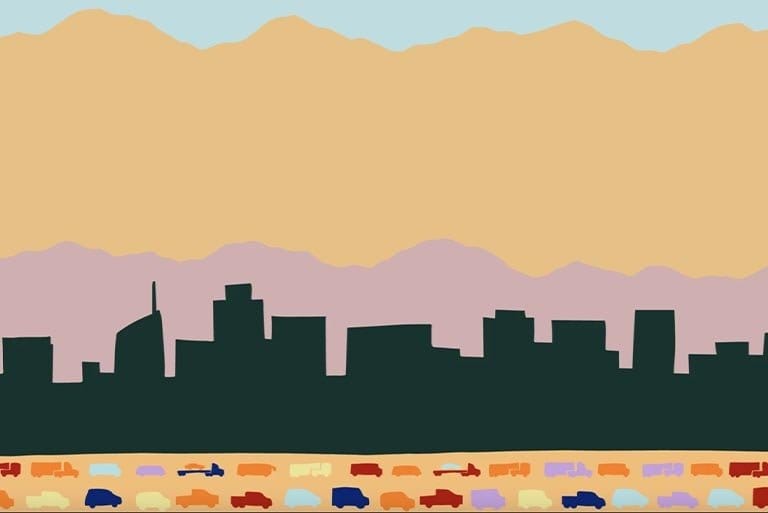Pitzer College and Redford Conservancy empower communities with data driven website, SoCal Earth

On Tuesday, Oct. 10, Pitzer College and the Robert Redford Conservancy for Southern California Sustainability held a press event following the launch of SoCalEarth.org, a website designed to help the public, policymakers and researchers make more informed decisions about climate change and community planning.
The website provides users with critical data to shape decisions around environmental justice and community resilience, centering a “community first, climate first” approach to decision-making.
Susan Phillips, the director of the Robert Redford Conservancy, says SoCal Earth is an experiment in what she considers “environmental communication.”
“It's time to shift course from decades of policy decisions that disregarded the planet and its most impacted populations,” Phillips shared at the event. “With our community first, climate first approach, we can empower everyone from fifth graders to municipal planners to ensure that the voices of those most affected by climate change are not only heard but prioritized.”
Developed in collaboration with ESRI, a leading provider of geographic information system (GIS) technology, SoCal Earth helps to visualize the environmental impacts of industrial development and pollution.
The website equips researchers and the public with tools to evaluate the health of their communities, allowing underrepresented communities to advocate for better policies.
According to proponents, SoCal Earth delivers data in a user-friendly format, developed to encourage civic engagement on issues of environmental justice, of climate and community.
Ana Gonzalez, the executive director of the Center for Community Action and Environmental Justice (CCAEJ), says SoCal Earth delivers data in a user-friendly format and is developed to foster community engagement on policy issues of climate and community.
“This tool has already supported our capacity to challenge inadequate warehouse jobs and other developments for stronger regulations, such as indirect source rules on warehouses, rail yards and ports.”
Piper Wallingford, a climate scientist with the Nature Conservancy’s California Chapter, is hopeful that expanded access to scientific data will strengthen frontline communities and the public’s response to the climate crisis.
“What makes SoCal earth so powerful is that it makes it possible to share and understand data in a way that works for everyone,” said Wallingford. “When data is easily accessible and interpretable, it encourages action, and it can lay the groundwork for real, lasting change in how we think about and plan for a future under climate change
You can check out the data tool yourself by visiting SoCalEarth.org
